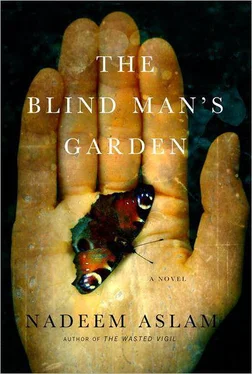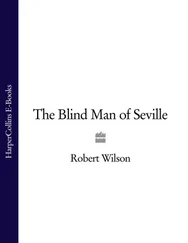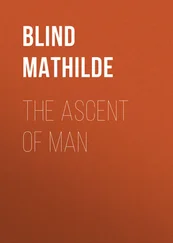‘That can be an excuse to not hold yourself to any standard at all.’
‘That too is true.’
She tells him to go with Allah and he shoulders the bag and begins to climb down.
*
From the bus station he telephones Naheed just to hear her voice and they talk about what they have planned and envisaged for themselves after his return. He whispers a few obscene things to her and she laughs quietly, and then he stands listening to her breath until the money runs out, the sun rising above Heer and the sky changing colour like someone switching from one language to another, and as in a fairy tale he knows that he’ll die if he takes off her chain from around his neck. When he hangs up it is with the bone-deep fear that beauty and loss might be inseparable, but then he thinks of a line from one of Wamaq Saleem’s poems. Love is not consolation, it is light .
… how he fell
From Heaven, they fabl’d, thrown by angry Jove
Sheer o’re the chrystal Battlements: from Morn
To Noon he fell, from Noon to dewy Eve,
A Summer’s day; and with the setting Sun
Dropt from the Zenith like a falling Star,
On Lemnos th’ Ægean Ile.
John Milton

As the bus nears Megiddo, the conductor and driver talk about a possible paramilitary cordon around the town. Mikal overhears the news that soldiers have been flagging down buses to check the passengers’ papers. Four miles from the outskirts he asks the conductor to let him out. He leaps off into the dust, the afternoon’s heat and intense light coming at him from the metal body of the bus and, as he begins to walk, from all points of the landscape, making him lose his sense of focus several times during the hour and a half it takes him to get to the outer limits of Megiddo. A wind shunting in from the open wild desert to the west. He stops when the yellow house comes into view and he stands looking at it, the material of the shoulder bag going soft in the heat. When he sets off again he has changed direction. Instead of approaching the house by the front door he will go along the riverbank, towards the kitchen at the back. Hidden in the grove of beautiful trees at the water’s edge, he watches the entrance to the kitchen. There is no movement and no sound. There is the imprint of a boot in the expanse of dust between the trees and the kitchen door. Lying on his stomach he listens with his ear pressed to the earth for several minutes. The sound of loose water. He waits the three hours until the sun drops towards the west and the light becomes a rich amber, the birds beginning to return noisily to the trees around him, screaming and ascending as they quarrel about an overloved branch. No one has gone in or come out of the house and at last he moves forward, going past the footprint. He is not sure if he recognises the pattern from his time in American custody.
The kitchen door creaks open at his touch and the first thing he notes is the spent cartridge on the tiled floor and he enters and walks through the room without a sound, the movements of the body honed down to the essential, the breath held. The door on the far side of the kitchen looks out onto the inner courtyard of the house and he peers through it, eyes surveying quickly. There is nobody and no light in any of the rooms lining the courtyard. Everywhere there is the red light of the setting sun as though the place is submerged in water-thinned blood.
He withdraws into the kitchen and lifts the cartridge from the floor and studies it for a long time.
He had glimpsed the car belonging to Akbar’s brother, parked on the other side of the courtyard, and taking a rag from a shelf he goes out to it at a walking crouch. He tears off the wing mirror from the car’s body, wrapping the cloth around it to muffle the noise, a fast decisive twist like breaking the neck of a rabbit.
He uses the mirror to inspect the rooms before entering them, sending it in at the end of his arm from each doorway.
Several walls are scarred with bullets. The phones have no dial tone. He is about to switch on the light but then stops himself. Instead he plugs in the clothes iron and touches its base after ten seconds to see if it is getting warm. It stays cold so the electricity has been cut off.
The three dogs are missing from the front of the gun factory and as he walks through the long grass mosquitoes appear, abdomens swollen with sucked blood, and he doesn’t know whose blood it might be. Inside the factory, the part of the floor before the furnace is covered with ashes of burnt money. An area the size of six or seven prayer mats. The patterns of ink that had been printed on the banknotes and the words, portraits and landmarks appear grey against the black of the crinkled paper — greys of various tints, depending on the original colour of the ink. Blue-grey. Orange-grey. Green-or red-grey.
His toes reduce one complete rectangle of blackness to a smear of black dust and as he moves around he is watched by the eye on each dollar bill.
The kitchen is filled with soft twilight shadows when he returns. He lights a lantern, almost wincing as the flame grows in the glass globe and the amount of light increases around him, as though someone is speaking louder than is prudent. He turns down the flame. The bag with the money has remained hanging from his shoulder. He lifts the terracotta lid of the milk pot to find that the milk has gone bad. He fills a glass with water and stands drinking in the semidarkness. There are chapattis stiff as cardboard in a basket but they can become like that within a day, so he can’t really work out how old they are.
At last he picks up the lamp and goes to the south wing and he stays in there for the better part of an hour, trying to reconstruct what has occurred there. The metal door at the entrance has been blown off and he sniffs the hinges to determine what explosive was used. The battle seems to have been fiercest here. The room that had contained boxes of leaflets and other literature is completely empty, the glass in the windows smashed, the casements splintered. There have been explosions in several rooms. Rockets, bombs. The soldiers must have thrown in grenades before entering. Shot through doors. He moves through the wing like a sapper, room by room, and only when he unlatches the very last door does he find two of the three Airedales. The bodies have entered rigor mortis. They are lying a few yards apart in the middle of the floor — bootprints join one pool of blood with the other and then walk away towards a window. There is no sign of the third dog.
Returning to the kitchen he takes one of the dried chapattis and eats it with the curried potatoes and mutton he finds in a bowl in the dead refrigerator, chewing the stiff pieces until they soften. He finds a jar of carrots in sugar syrup and eats them in the dark light, lifting the long red pieces to his mouth two or three at a time, looking out through the window at the river flowing silently under the rising moon, the hatchery of stars in the most distant field of vision.
Wiping his hands on his trousers he walks into the women’s section. Quietly he calls out to the leopard several times as he goes deep into the inner sanctums. Silence surrounds him in her room and he feels it is the silence of a trap. He is enclosed in an immense thing and he breathes slowly to remain calm, telling himself it shouldn’t matter how deep the water is as long as you can swim.
He falls asleep on the kitchen floor, using the shoulder bag as a pillow, and wakes several hours later looking up at the dark blue sky. He has no memory of it but sometime in the night he had left the kitchen and come out onto the courtyard and resumed his sleep in the grass and now he lies looking up at the constellations in the warmly burning canopy and he feels the earth pressing up against his spine, sustaining him, lifting him inside the nocturnal space. He is held against the taut trembling solidity of the planet, the enormous living curve of the world under his body.
Читать дальше













